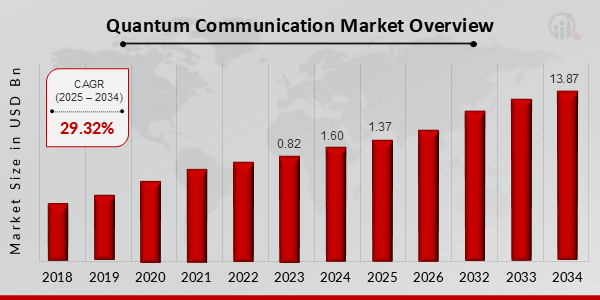The adoption of a security paradigm based on the laws of physics is being led by sectors where the need for long-term data protection is absolute. The US Quantum Communication industry is seeing its initial traction in a select group of vertical markets that are both highly regulated and prime targets for sophisticated cyber adversaries. The industry's projected growth to $2,183 million by 2035, at an impressive 26.15% CAGR, will be driven by the deepening penetration within these key sectors and the gradual expansion into new ones. The primary early adopters are government and defense, financial services, and critical infrastructure, each with unique and compelling use cases that justify the significant investment in this groundbreaking technology. These verticals are serving as the crucial testbeds and proving grounds for the broader commercial rollout of quantum security.
The government, defense, and aerospace sector is the leading vertical for quantum communication adoption. For military and intelligence agencies, the ability to communicate with absolute secrecy is a matter of national security. These organizations are prime targets for espionage by sophisticated state-level actors who have the resources to conduct "harvest now, decrypt later" attacks, where they collect encrypted data today with the intention of breaking the encryption with a future quantum computer. Quantum communication provides a solution to this long-term threat. Use cases include securing satellite communications, protecting command and control networks for critical military assets, and ensuring the confidentiality of intelligence shared between agencies. Government investment is not just for its own use; it is also a strategic effort to foster a domestic quantum industry to maintain a technological edge.
The financial services industry is another key early adopter. The security of financial transactions and the protection of sensitive customer data are paramount for banks, investment firms, and stock exchanges. A major breach could have catastrophic consequences for both the institution and the broader economy. This sector is investing in quantum communication to secure the high-speed data links between their data centers, which carry billions of dollars in daily transactions. They are also exploring its use for securing ATM networks and online banking platforms. The need to comply with stringent data protection regulations and to maintain the absolute trust of their customers makes the financial industry a natural fit for a technology that offers a provable and future-proof guarantee of security for their most critical data flows.
Critical infrastructure sectors, such as energy and telecommunications, are also emerging as important verticals. The control systems that manage the power grid, water supplies, and other essential services are increasingly connected to digital networks, making them vulnerable to cyberattacks that could have devastating physical consequences. Quantum communication can be used to secure the command and control links for these Industrial Control Systems (ICS), ensuring that only legitimate commands can be sent to operate critical equipment. For telecommunications providers, quantum communication offers a path to build the next generation of inherently secure fiber optic networks. By integrating QKD into their infrastructure, they can offer "quantum-secure" communication services as a premium offering to their enterprise and government customers, creating a new line of high-value business.
Explore Our Latest Trending Reports:



